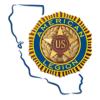
There are significant differences between what the presiding officer may do in a business meeting (monthly Post meeting) and a committee meeting.
“If the presiding officer is a member of the assembly or voting body, he has the same right as any other member. Except in a small board or committee, however – unless the vote is secret (that is, unless it is by ballot; 45) – the chair protects his impartial position by exercising his voting right only when his vote would affect the outcome, in which case he can either vote and thereby change the result, or he can abstain.” RONR (12th ed.) 4:56
When it comes to debate on a pending question, “…the presiding officer does not enter into discussion of the merits of pending questions (unless, in rare instances, he leaves the chair until the pending business has been disposed of…” RONR (12th ed.) 4:31
Note the exception mentioned above for a small board or committee from RONR (12th ed.) 4:56. In a committee meeting, “If the chairman is a member, he may, without leaving the chair, speak in informal discussion and in debate, and vote on all questions.4” RONR (12th ed.) 49:21 (7)
Informal discussion may be initiated by the chair himself, which, in effect, enables the chairman to submit his own proposals without formally making a motion as described in 4:4-8 (although he has the right to make a motion if he wishes). RONR (12th ed.) 49:21(7)n4
In summation, the chairman of a business meeting does not take part in debate without first relinquishing the chair and, with the exception of a ballot vote, votes only when his vote will affect the outcome. In a committee meeting, the chairman is a fully participating member with the right to make motions, take part in debate, and vote on all questions.
Gary Leach is parliamentarian for The American Legion Department of California.














Thank you Commander. I appreciated learning about this distinction.